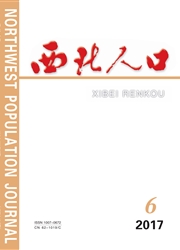

 中文摘要:
中文摘要:
本文以生命周期理论为出发点.使用中国1990-2011年的省际面板数据和动态面板GMM估计方法。考察了人口年龄结构变化对我国最终消费的影响。实证结果表明.少儿抚养比对最终消费有正的影响.而老年抚养比对最终消费有负的影响。我国尚处老龄化的初期,预期寿命的延长使得中老年人减少消费并增加储蓄.以保证退休后的生活水平不下降.这直接造成了我国最终消费率伴随老年抚养比的上升而下降的独特现象。在使用不同的计量技术和识别方法之后,以上结果依然稳健。从人口年龄结构角度看,我国低消费、高投资的经济发展特点仍将持续一段时间.这种情况在长期会逐渐反转。
 英文摘要:
英文摘要:
Based on the life cycle theory ,this paper studies the impacts of age structure change on China's deficient consumption using dynamic panel data at the provincial level for the period of 1990-2011. We use different specifications and econometric methods to conduct our analyses, and find that both young dependency ratio and old dependency ratio have led to China's decreasing final consumption rates. In addition,we also find strong habit persistency in final consumption preference From the perspective of demographic structure,we forecast that the deficient consumption will maintain for a period of time, and gradually reverse in the long run.
 同期刊论文项目
同期刊论文项目
 同项目期刊论文
同项目期刊论文
 期刊信息
期刊信息
